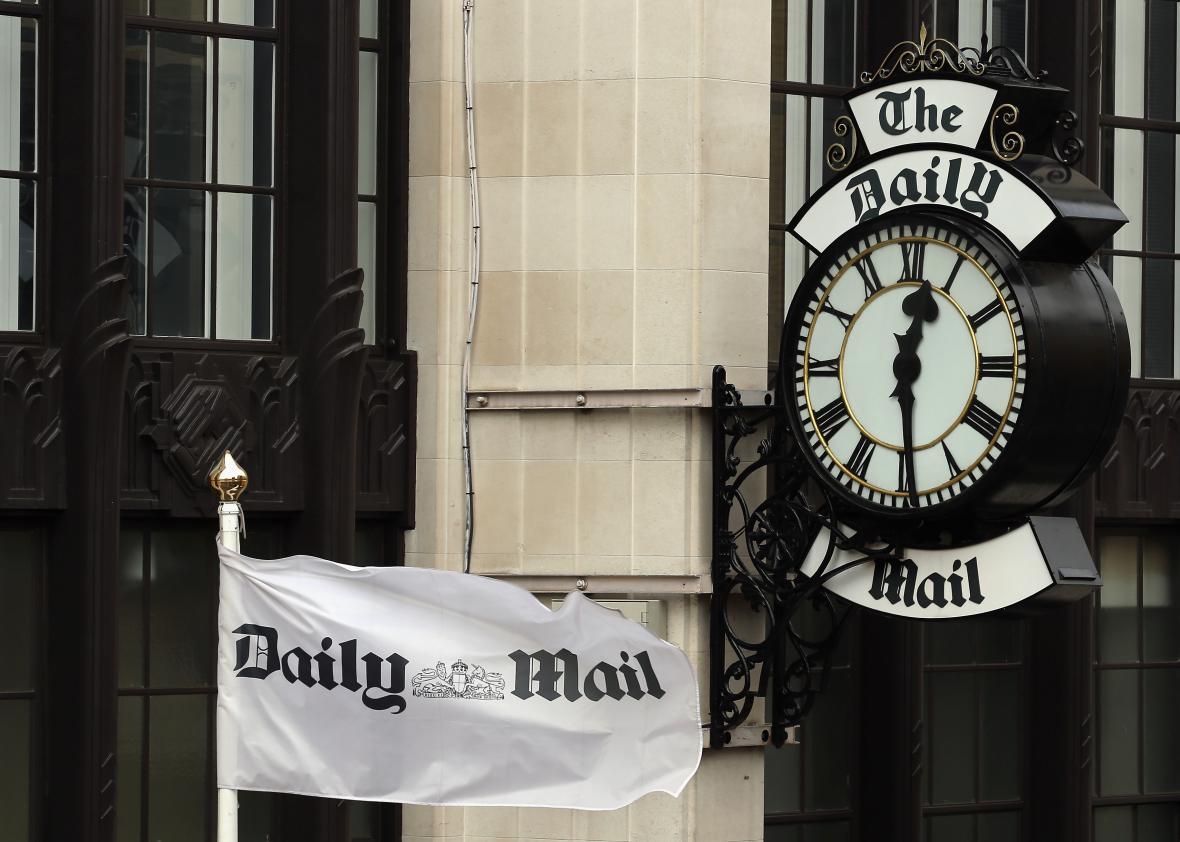The Daily Mail, a leading conservative British tabloid, has a storied history of scaremongering, warmongering, gossipmongering, stereotyping, and even supporting fascism. In the pre-internet era, it was mostly Britain’s problem. But over the past decade, the Mail’s online organ has metastasized into one of the world’s largest news sources, covering dubious, salacious, and sensational stories wherever it finds them—with relatively little original reporting, accountability, or regard for accuracy. Its vast readership reminds us that popularity and credibility don’t necessarily go hand-in-hand, especially on the internet.
On Wednesday, the volunteer editors of Wikipedia took a rare and widely lauded stand: They decided by consensus to “generally prohibit” the Mail’s use as a source in the online encyclopedia’s articles. Here is the notice the editors posted to Wikipedia’s discussion page on identifying reliable sources:
Consensus has determined that the Daily Mail (including its online version, dailymail.co.uk) is generally unreliable, and its use as a reference is to be generally prohibited, especially when other more reliable sources exist. As a result, the Daily Mail should not be used for determining notability, nor should it be used as a source in articles. An edit filter should be put in place going forward to warn editors attempting to use the Daily Mail as a reference.
The move is the culmination of a two-year-long debate among the site’s editors. Those in favor of discouraging Mail citations pointed to its “poor fact checking, sensationalism, and flat-out fabrication,” providing numerous examples of each. Those who opposed blacklisting the paper argued that it is “actually reliable for some subjects” and “may have been more reliable historically.” More persuasively, they pointed out that the internet is full of news sources whose reporting is equally dubious, if not more so, yet few have been the target of a blanket policy. In the end, the consensus decision left the door open to similar prohibitions on other unreliable outlets in the future.
It’s worth clarifying that the stand was taken by Wikipedia’s volunteer editors and not by the nonprofit Wikimedia Foundation, which runs the site but does not directly oversee its content. Still, the foundation told the Guardian the decision was “consistent with how Wikipedia editors evaluate and use media outlets in general—with common sense and caution.”
There are risks involved when an influential platform decides to blacklist certain publications. Read the full discussion page that led to the decision and you’ll see that the people who made it are not necessarily media experts. You don’t need to sympathize with the Daily Mail to worry that Wikipedia’s editors are opening a dangerous box by targeting specific news outlets for blanket prohibitions. Bans are binary, whereas journalistic credibility lies on a spectrum.
For an example of how this sort of process can go awry, look at the 2013 decision by moderators of Reddit’s influential /r/politics subreddit to ban links to a wide range of publications, including Mother Jones, Huffington Post, and Gawker. Their alleged offenses: “blogspam,” “sensationalism,” and “bad journalism.” Their flaws aside, however, each of those publications has been responsible for groundbreaking news investigations over the years, along with influential commentary. When my own Slate story about the ban made the subreddit’s front page, the thin-skinned moderators took that down, too. (They later apologized for their handling of the ban.)
That said, the Wikipedia editors’ decision-making process was far more transparent and deliberate, and the rationale seemed to have little to do with any particular political agenda. Their ultimate decision was also somewhat more reasonable than an outright ban: Daily Mail citations may still be permitted on a case-by-case basis, in recognition of the fact that the paper does sometimes conduct original reporting on newsworthy topics that haven’t been better-covered elsewhere. (I’ve also argued that some stodgier media outlets could learn from the Mail editors’ nose for a story, if not from their shameless aggregation practices and cavalier attitude toward science, facts, and general decency.)
All things considered, it’s hard to argue with this decision: It should encourage more careful sourcing across Wikipedia while doubling as a richly deserved rebuke to a publication that represents some of the worst forces in online news. Perhaps it will even help to encourage readers around the world to treat Daily Mail stories with similar circumspection. (Greater awareness about unreliable news sources would be especially welcome stateside, given the current political climate.)
Besides, it’s a great excuse to repost perhaps the most satisfying Daily Mail rebuke of all: Dan & Dan’s timeless “Daily Mail Song.”
Previously in Slate:
